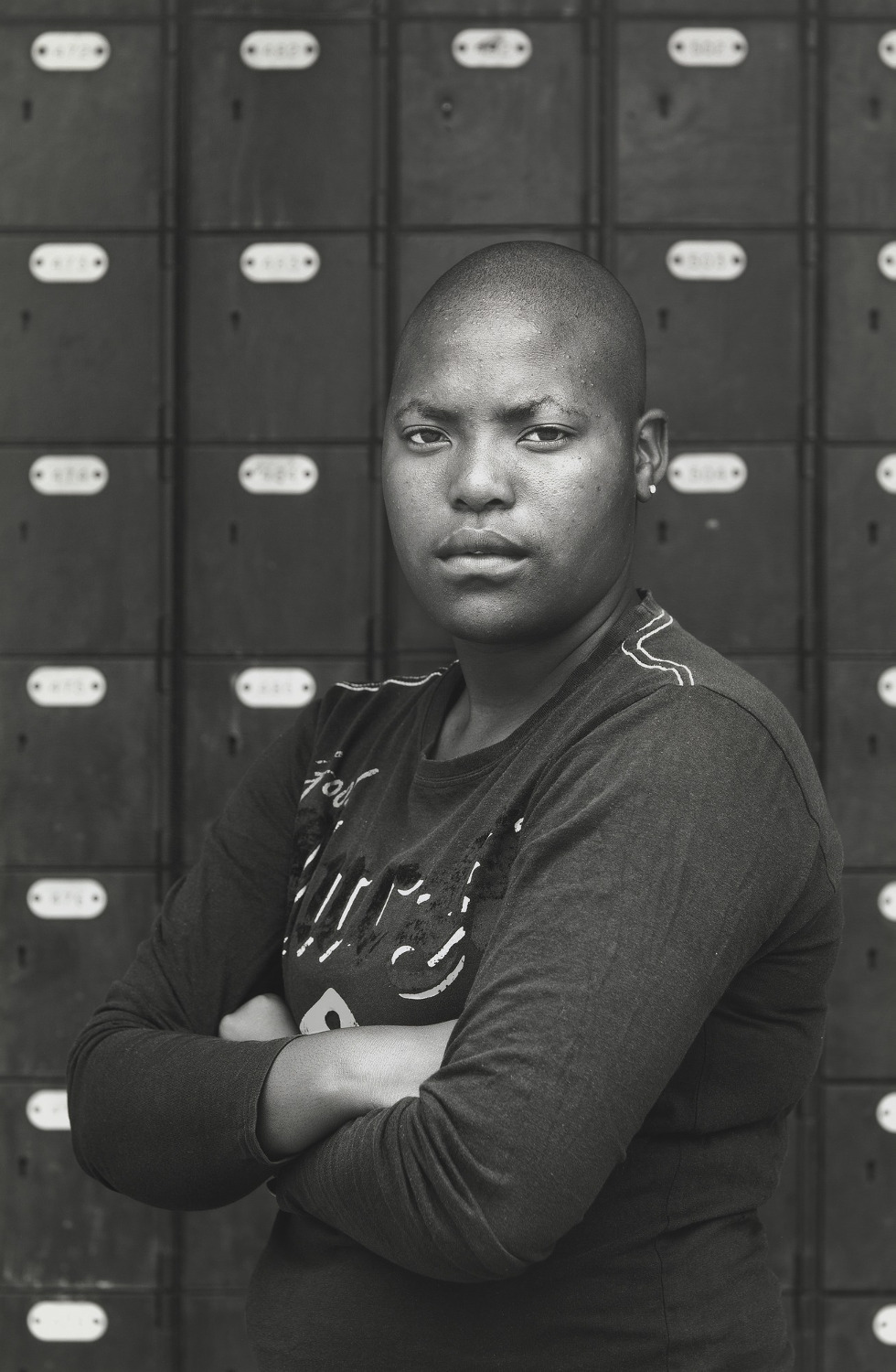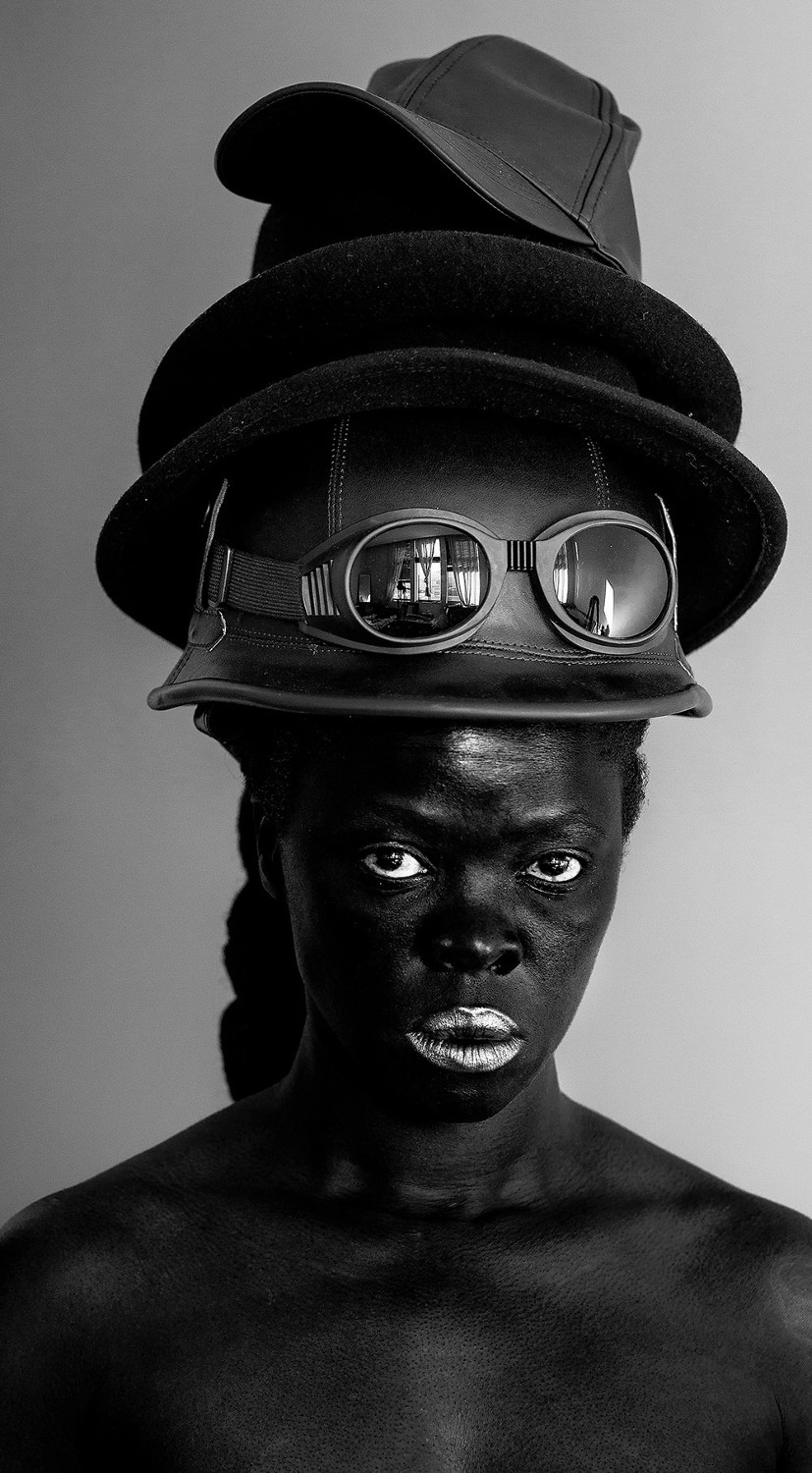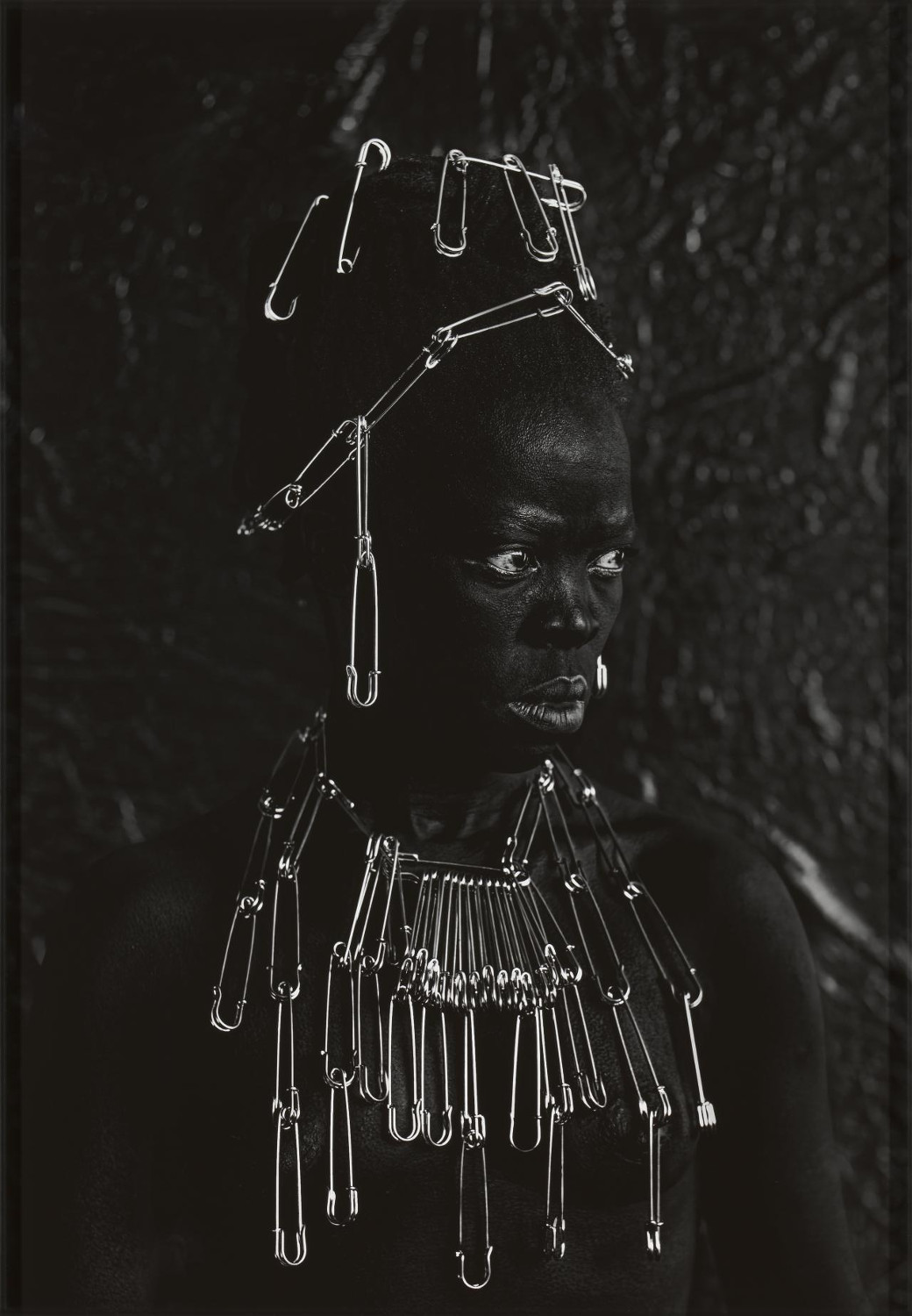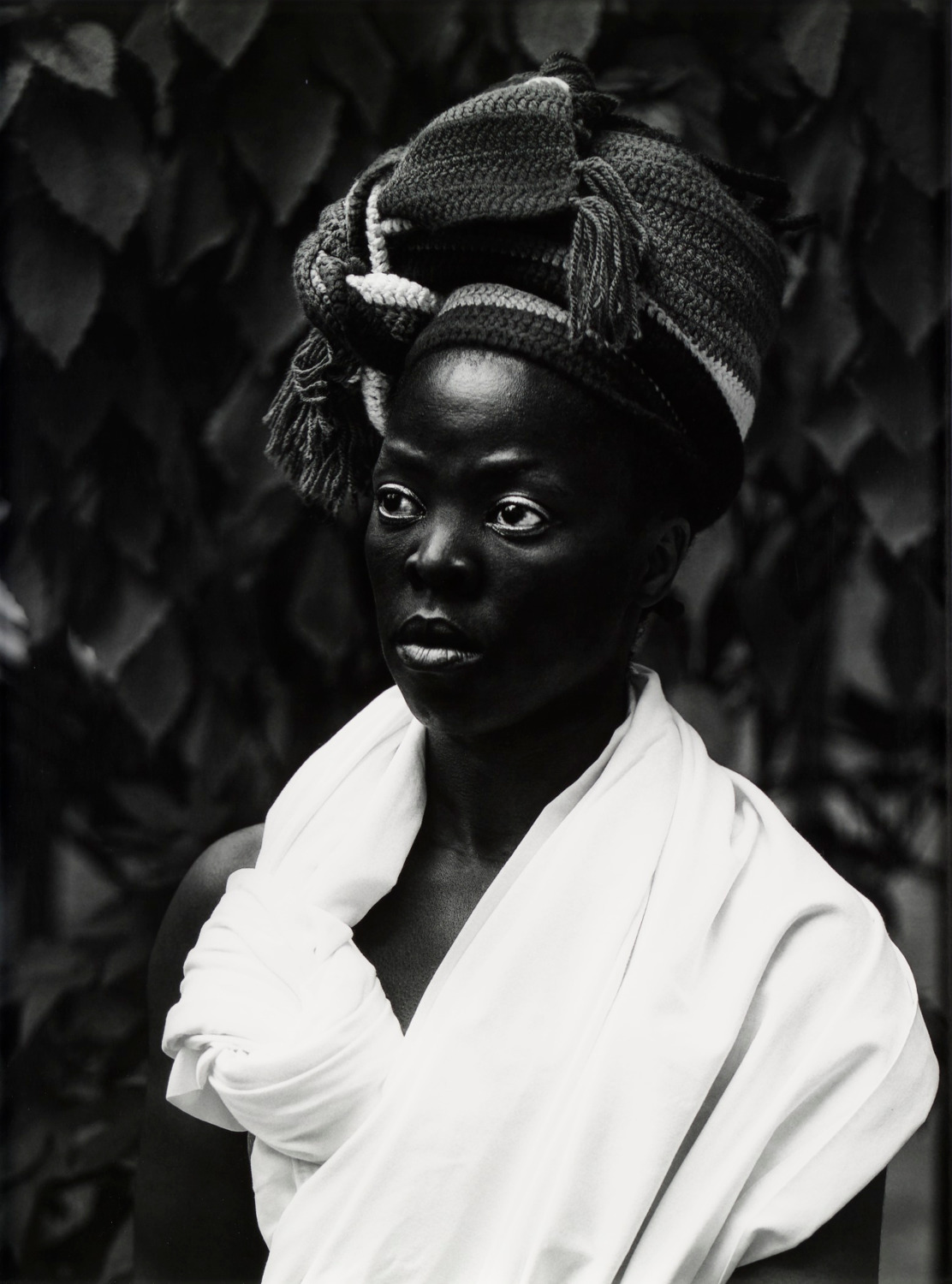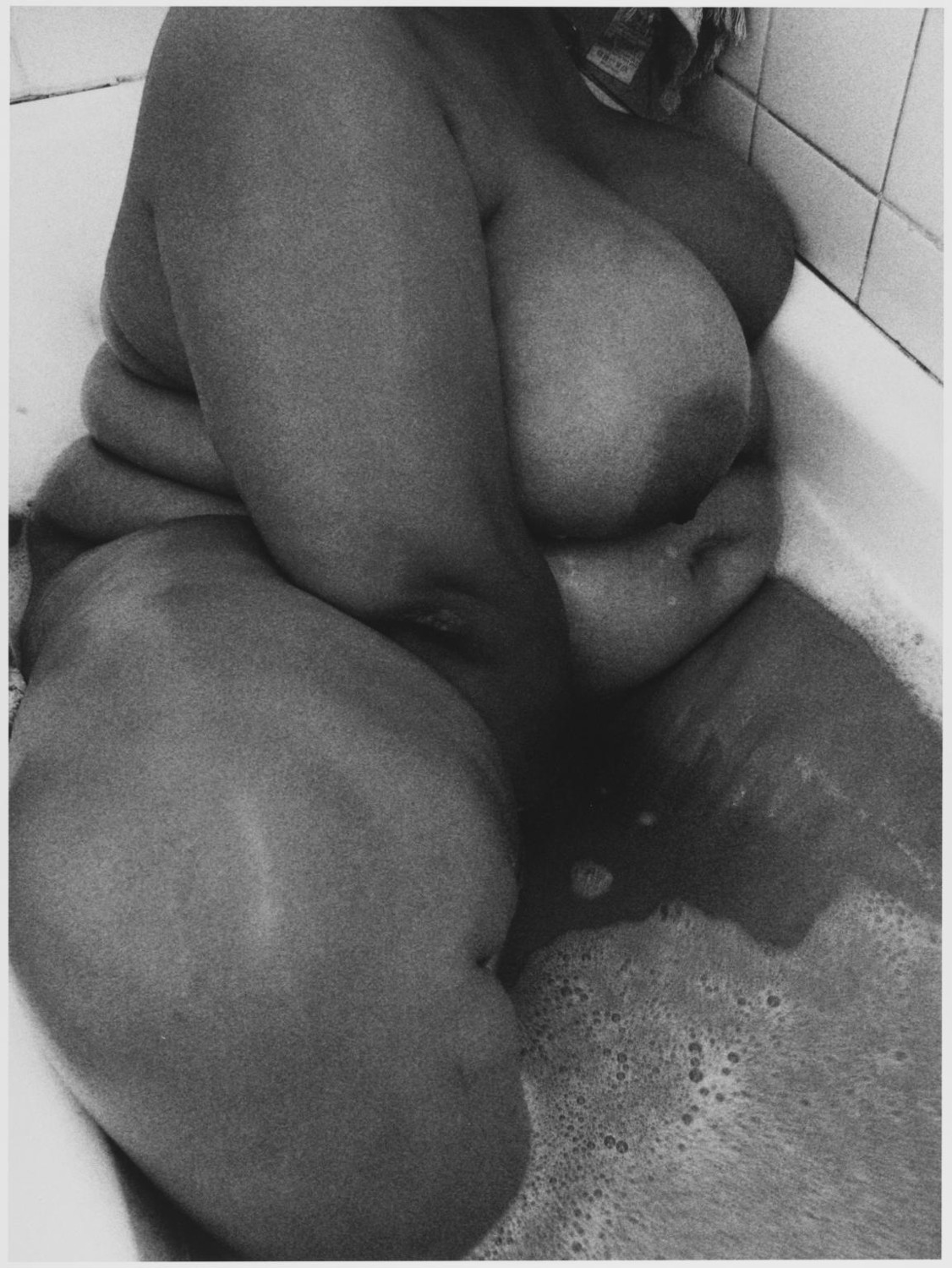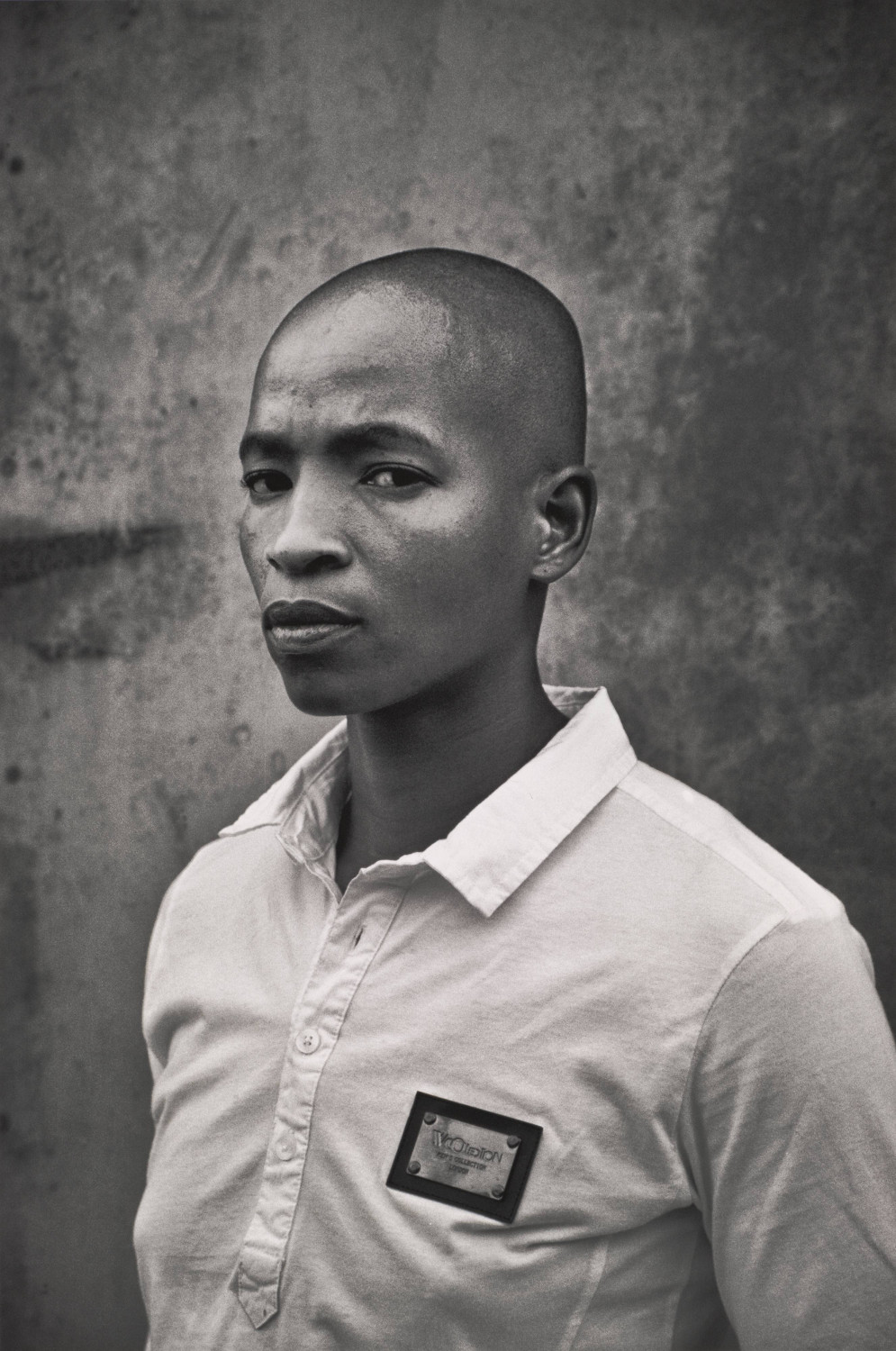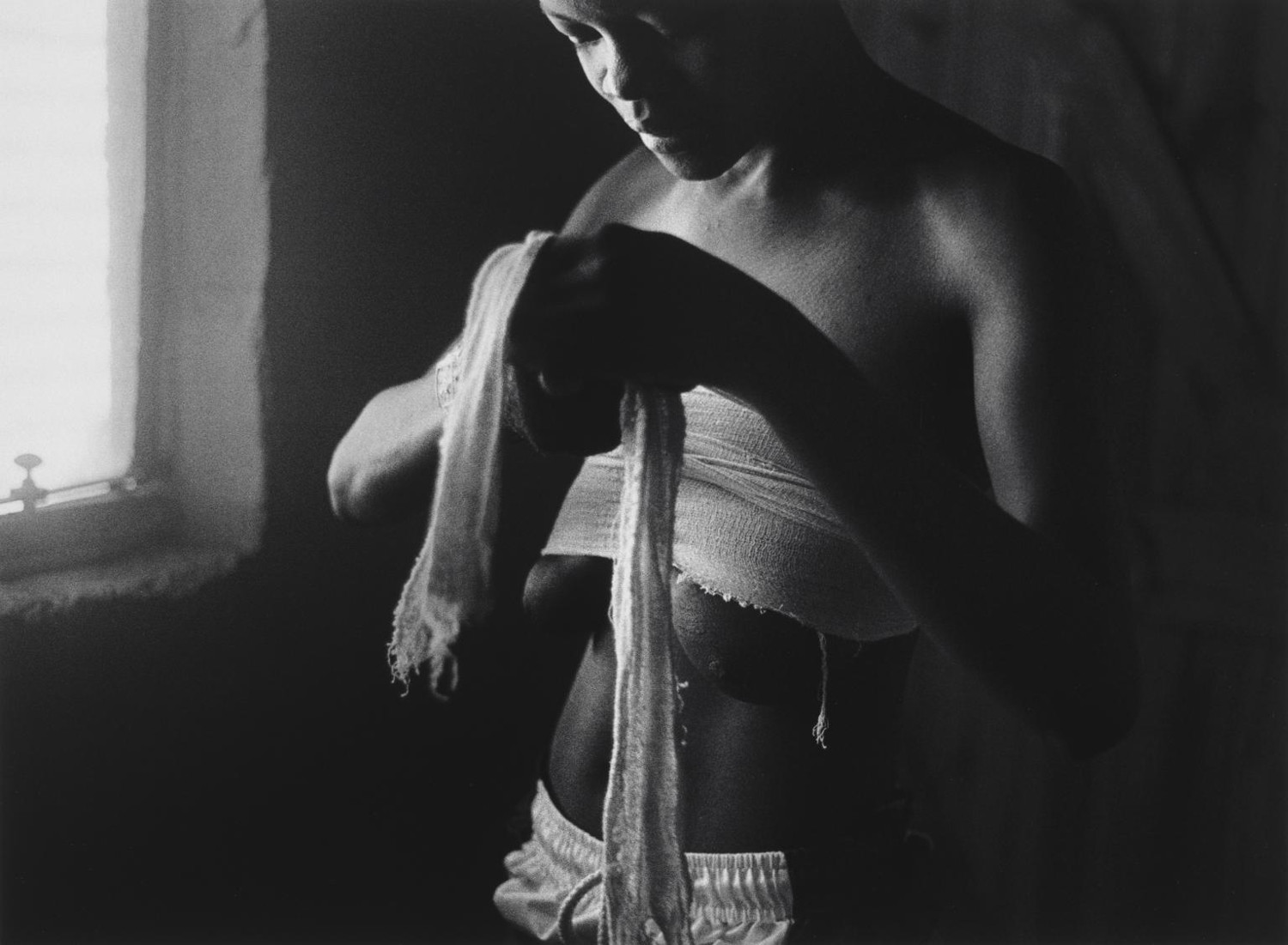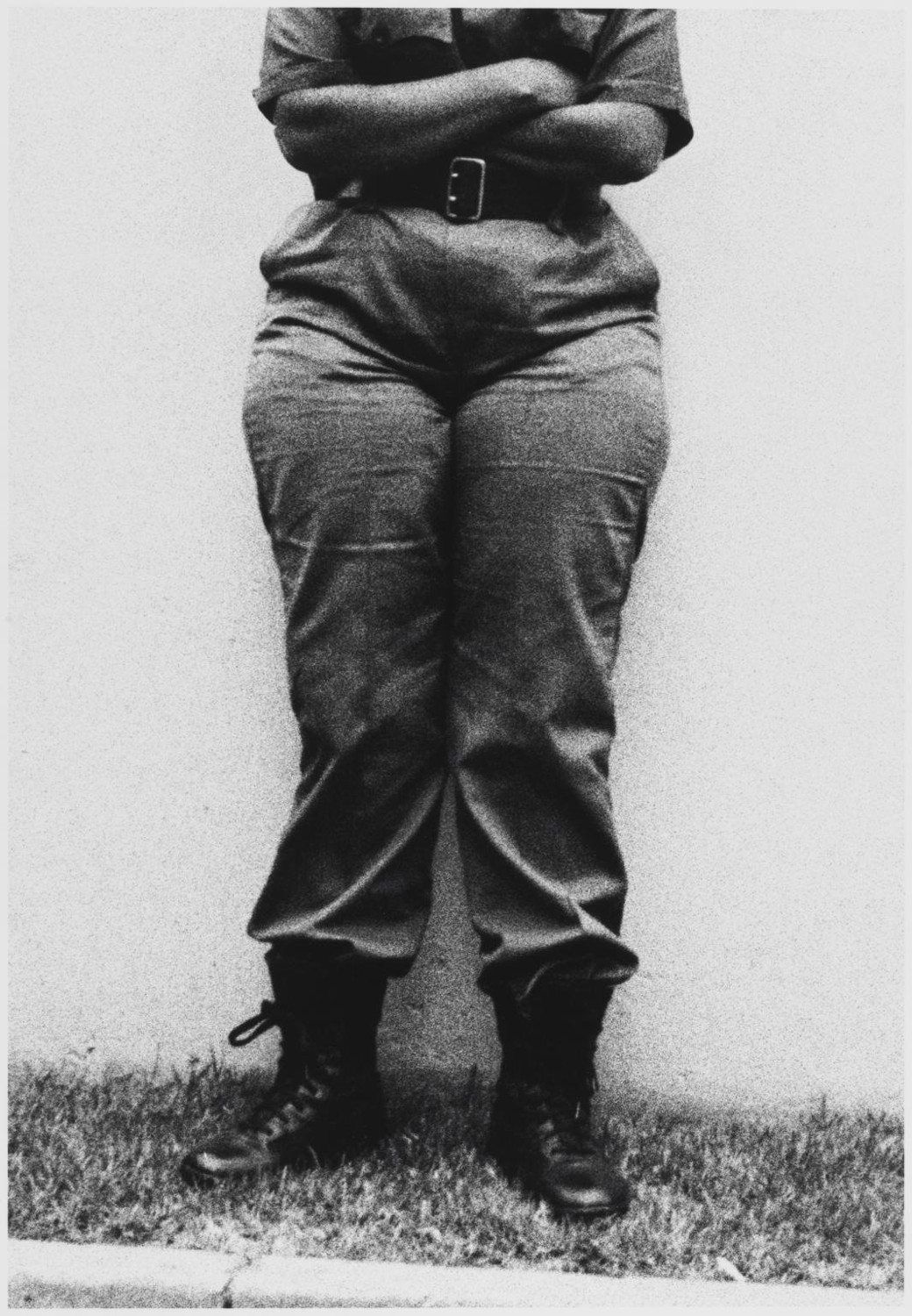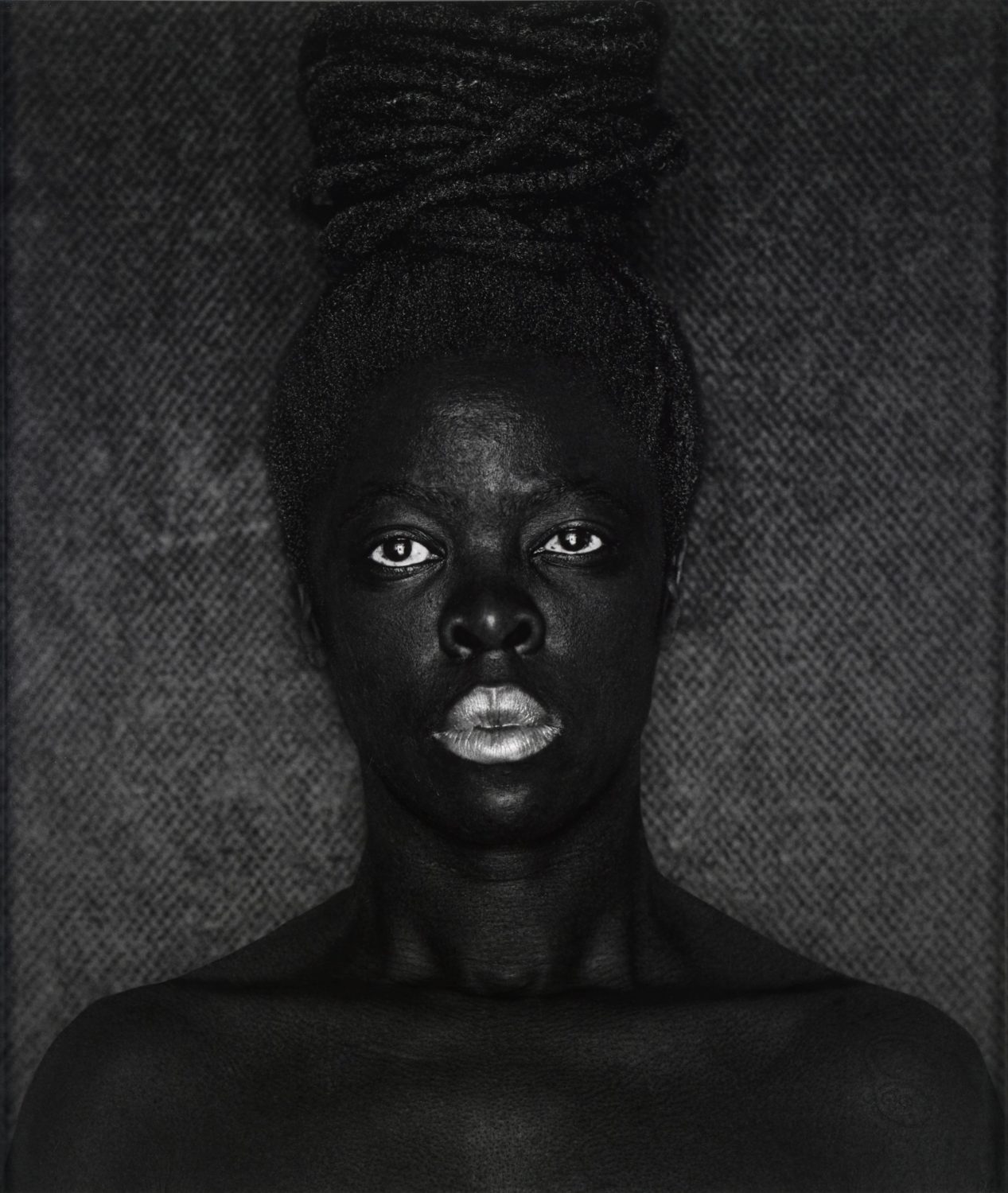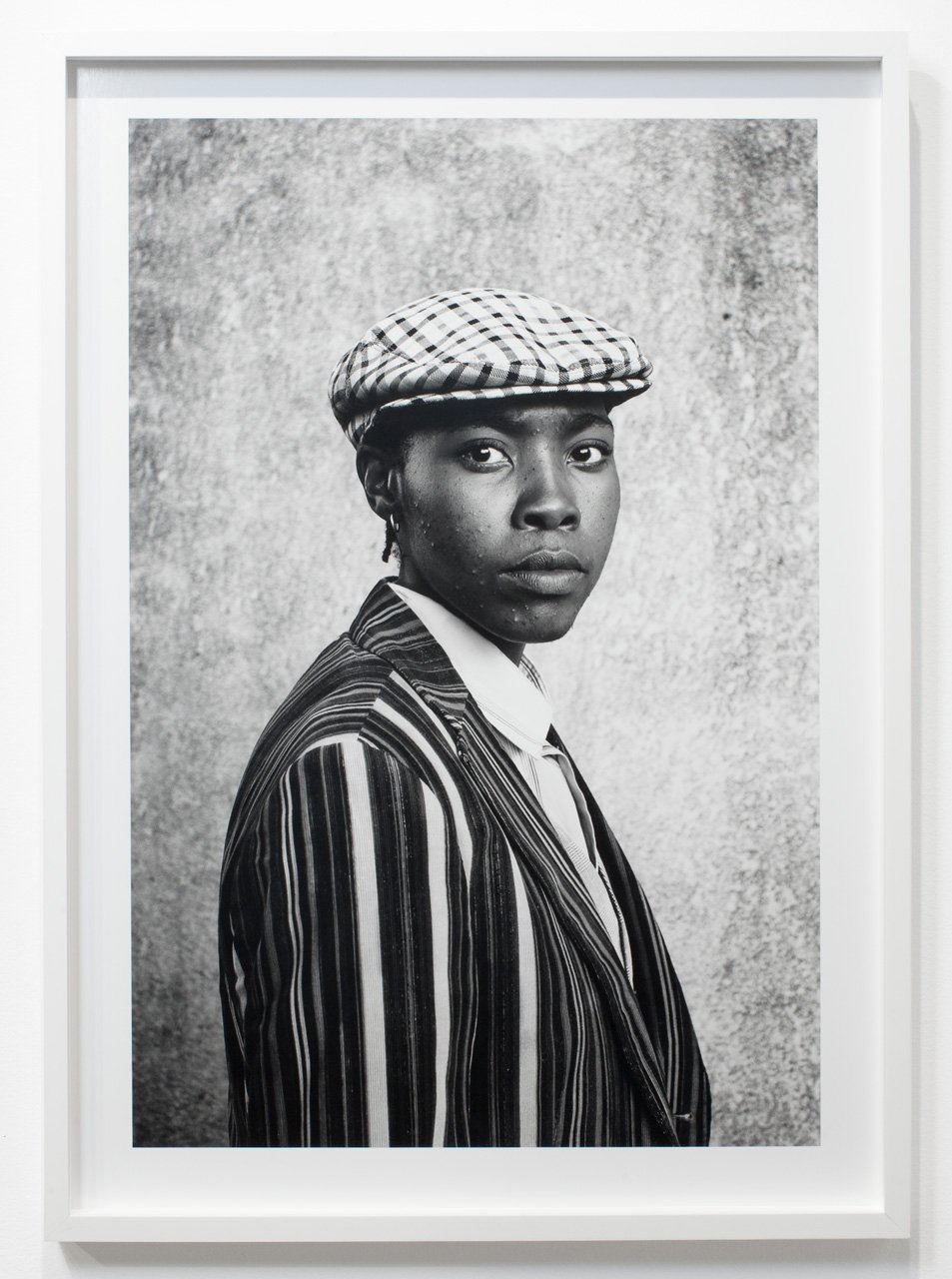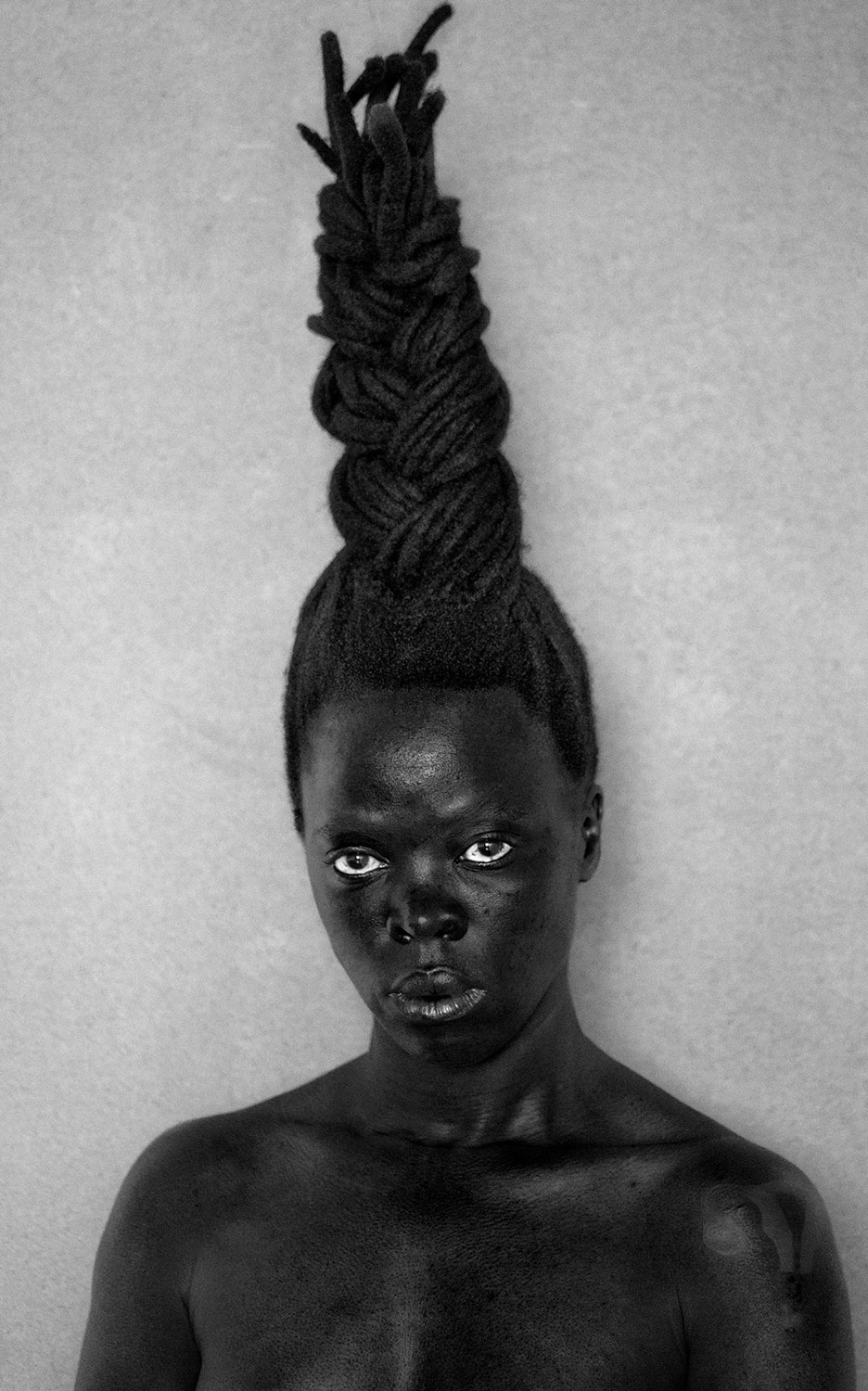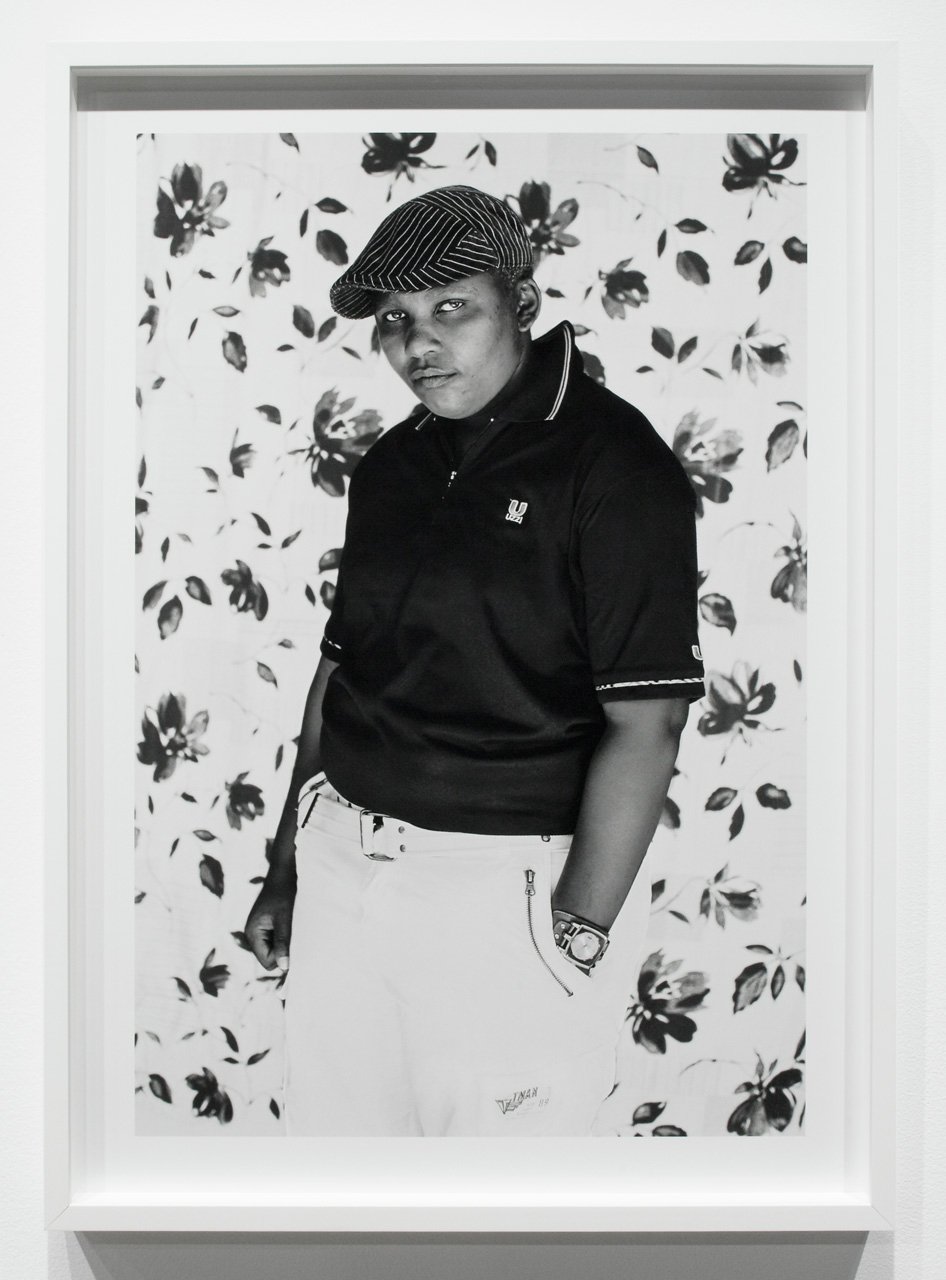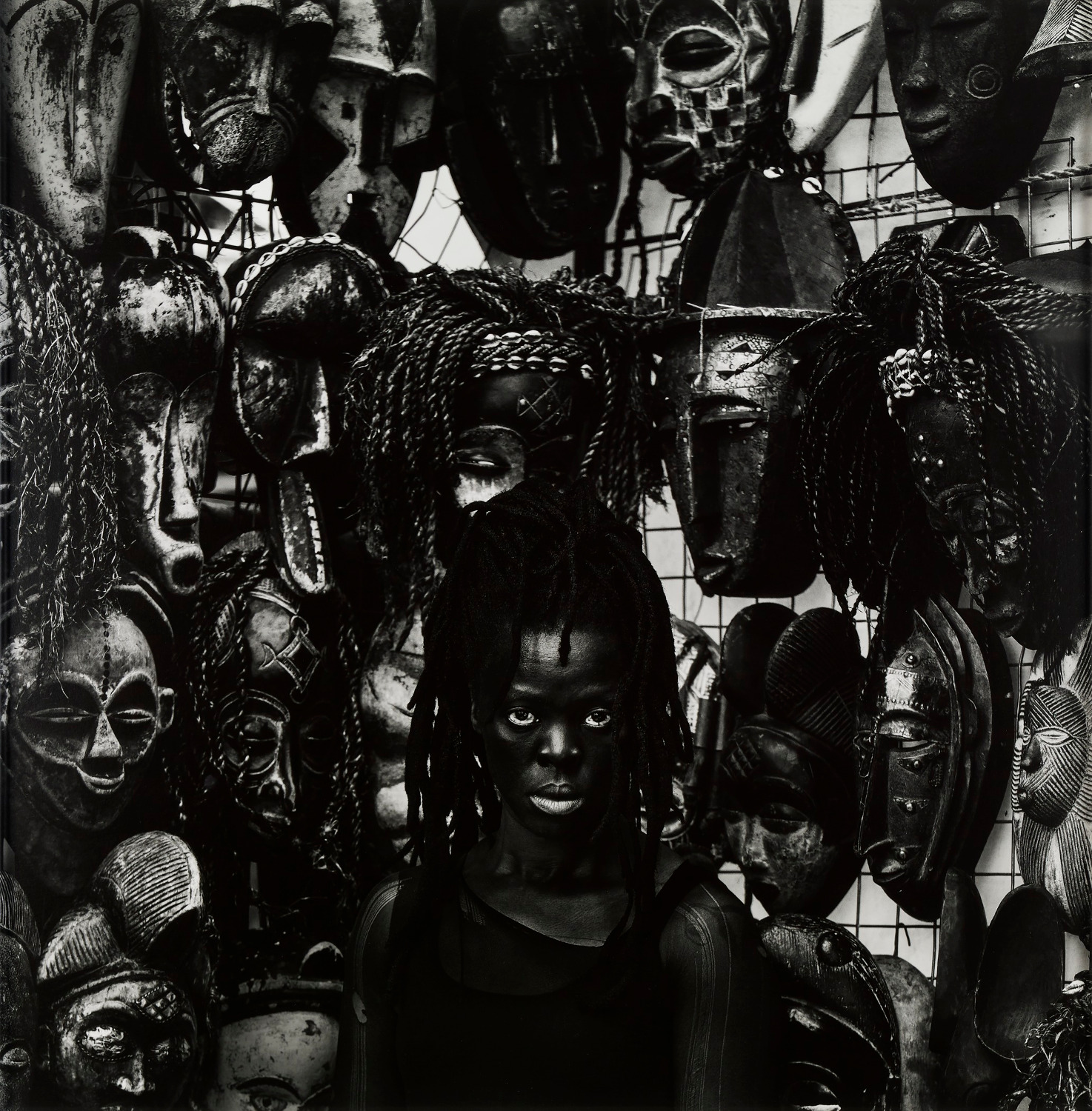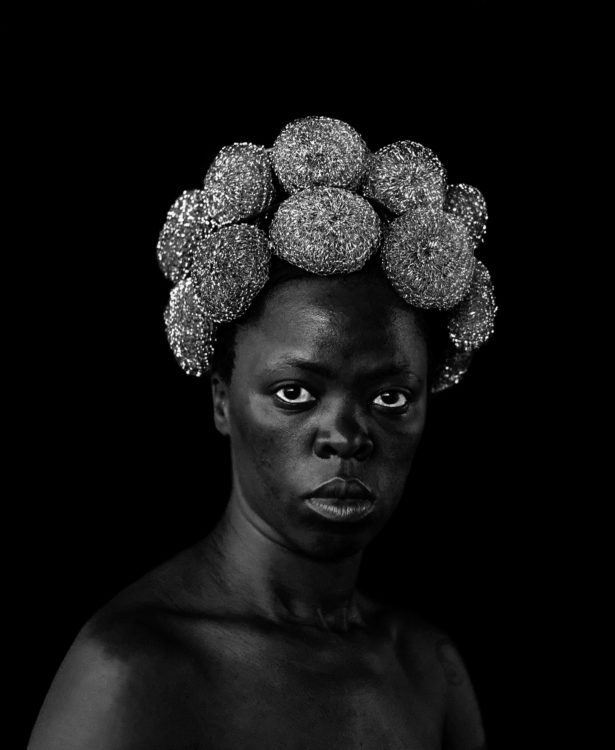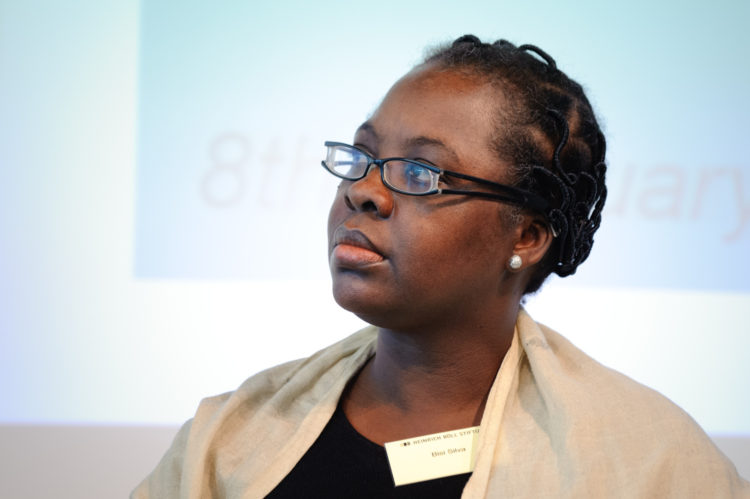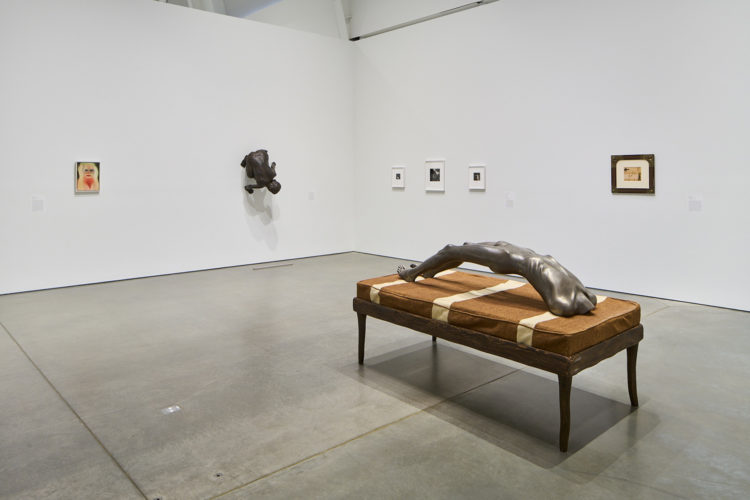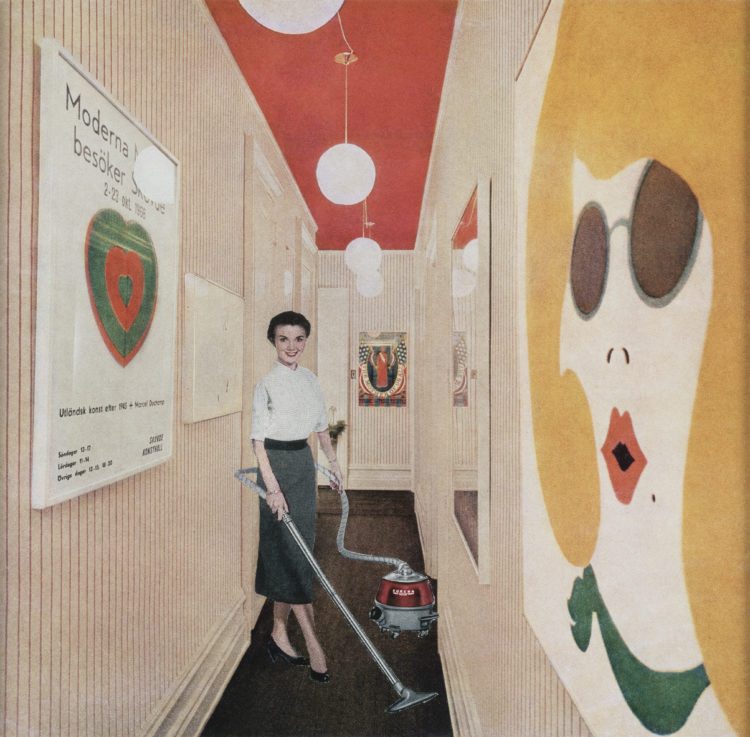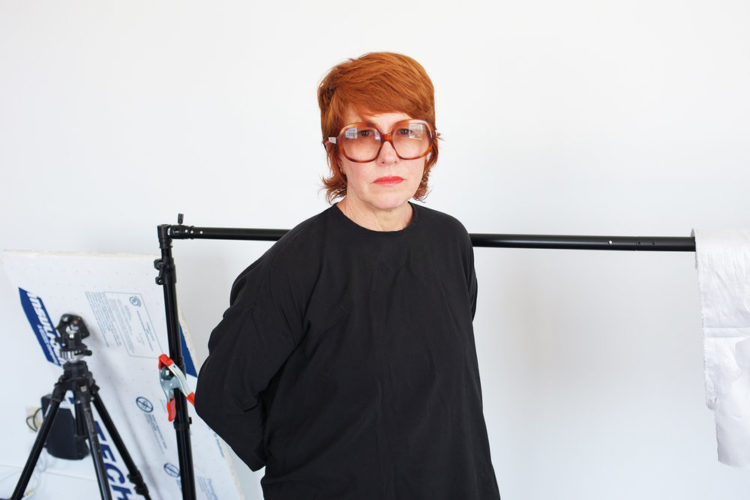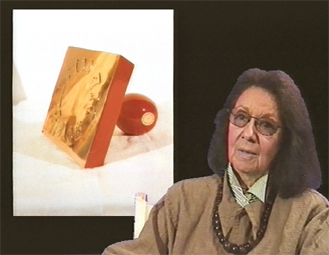Zanele Muholi
Zanele Muholi, Only Half the Picture, Michael Stevenson/STE, 2006
→
Zanele Muholi, African Women Photographers #1, Nantes/Paris, Casa Africa/La Fábrica, 2011
Zanele Muholi, Faces and Phases 2006-14, Göttingen, Steidl/The Walther Collection, 2014
Zanele Muholi: Isibonelo/Evidence, Brooklyn Museum, New York, 1 May – 8 November 2015
→Zanele Muholi, Stedelijk Museum, Amsterdam, 8 July – 22 October 2017
→Zanele Muholi, Tate modern, London, 29 April – 18 October 2020
South African photographer and activist.
Zanele Muholi grew up in a township on the outskirts of Durban. They moved to Johannesburg at the age of 19 and, in 2002, enrolled in the Market Photo Workshop, a school founded by the acclaimed South African photographer David Goldblatt. The two-year intensive course marked a major turning point during which the artist outlined the principles of their photographic approach, an approach they define in absolute correlation with their commitment to the South African LGBTI community, which, although it is supported by the Constitution, continues to endure violence, discrimination and inequality. As a “visual activist”, as Z. Muholi likes to present themself, the artist develops an extensive and open visual archive that focuses mainly on black lesbian women.
In 2006, they began working on an ambitious project entitled Faces and Phases, the “Faces” being the subjects, and “Phases” the different phases of their identity construction. The constantly evolving series is emblematic of their entire approach, and now includes some 300 portraits of women that Z. Muholi has met all over the country, and with whom they have sought to establish “a relationship based on mutual understanding”. Captured at various moments of their lives, the models are all photographed following the same method established by the artist: head and shoulder shot, face or three-quarters on, framed at an equal distance, indoors or outdoors, in black and white, without any accessories, backdrops or costumes. With this unique collection, Z. Muholi gives visibility to South African black lesbian women, reveals their presence, and gives them the possibility to assert themselves in the eyes of the world through their difference and singularity. Beyond their value as social documentary, these manifestly heartfelt images face viewers with a rare intensity.
The series Somnyama Ngonyama [“Hail the dark lioness” in Zulu], initiated in 2012, marks a new step in Z. Muholi’s work. With this series of self-portraits, taken at home or in hotel rooms while abroad, the artist questions the history of photographic depictions of black women’s bodies. The artist is shown wearing outrageous makeup and an array of headpieces, costumes, and accessories (shells, clothes pegs, stainless steel scouring pads, electrical cable, stools, feathers, gloves, bank notes…), and proudly posing in minimalist settings to poke fun at stereotypes surrounding African femininity. Shot in black and white, these pictures make meticulous use of lighting in order to accentuate the pigmentation of the black skin to the extreme.
Z. Muholi has expressed their unfailing commitment to the LGBTI cause in many exhibitions, publications, and conferences, as well as in their documentary filmmaking (Difficult Love, 2010) and through the creation of a forum focused on women’s empowerment and a multimedia platform for queer artists (www.inkanyiso.org). They are now considered a major figure in South Africa, both in activist circles and in the art world, embodying the first post-Apartheid wave of political artists and the leader of a new generation of artists for whom they have without a doubt paved the way.



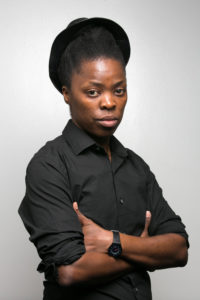
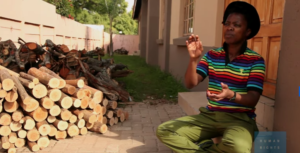 Zanele Muholi, Visual Activist
Zanele Muholi, Visual Activist 